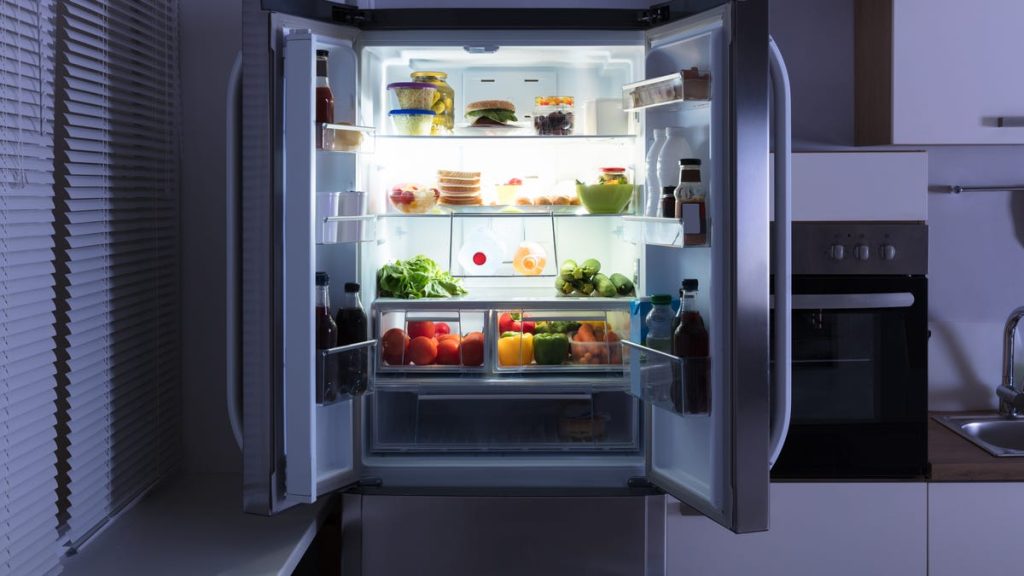When facing a power outage, it is essential to prepare in advance to save your food and ensure it remains safe to consume. The US Centers for Disease Control and Prevention recommends having appliance thermometers for both the refrigerator and freezer, a cooler with frozen gel packs, and dry ice or block ice in case the power is out for an extended period. When the power first goes out, it is crucial to keep the refrigerator and freezer doors closed to maintain the cold temperature inside, which can keep food safe for up to four hours in the refrigerator and 48 hours in a full freezer. If the power outage extends beyond these timelines, it is necessary to start moving perishable food out of the fridge to prevent spoilage.
It is advised to separate perishable food into two groups when the power is out for an extended period. Foods that do not need to be kept cold, such as butter, peanut butter, herbs, and certain fruits and vegetables, can be left on the counter. On the other hand, dairy products, eggs, meats, poultry, and fish must be kept at 40 degrees Fahrenheit or lower to prevent bacterial growth. Using a cooler with ice packs, frozen foods are layered at the bottom, followed by foods from the fridge, and another layer of frozen food on top. Distributing ice packs around the food in the cooler helps maintain a consistent temperature. If a cooler is not available, the freezer can be used as a temporary storage option, as long as it remains closed and has a fresh supply of ice to maintain the cold temperature.
If perishable food has been left in the fridge for more than four hours during a power outage, it is essential to discard it to prevent foodborne illness. It is advised to have a plan in place before a power outage strikes to ensure the safety of the food in your refrigerator. By following the guidelines provided by the CDC and having necessary items like appliance thermometers, a cooler, and ice packs on hand, you can save most of your perishables and prevent them from spoiling. In the event of a natural disaster, having a preparedness plan for power outages can make a significant difference in ensuring the safety and well-being of you and your family.
During a power outage, it is crucial to have a strategy in place to preserve the food in your refrigerator and freezer to prevent spoilage and potential health risks. Extreme weather events like hurricanes and heat waves are becoming more common, highlighting the importance of being prepared for power outages. By following the recommended steps of preparing before a power outage, separating food into different groups based on storage requirements, and using coolers or freezers with ice packs, you can ensure that your perishable food remains safe to consume. Additionally, knowing how to handle dry ice safely and understanding when to discard food that may have spoiled are essential aspects of dealing with a power outage effectively.
In summary, being prepared for power outages by having necessary items like appliance thermometers, coolers, and ice packs on hand can help you save your perishable food and prevent spoilage. Knowing how to separate food into different groups based on storage requirements and using coolers or freezers with ice packs can help maintain the cold temperature necessary for perishable items. By following these guidelines and having a plan in place before a power outage strikes, you can mitigate the risk of losing food and ensure the safety of your family during natural disasters or other emergencies. Stay informed, be proactive, and have a plan in place to handle power outages effectively.


